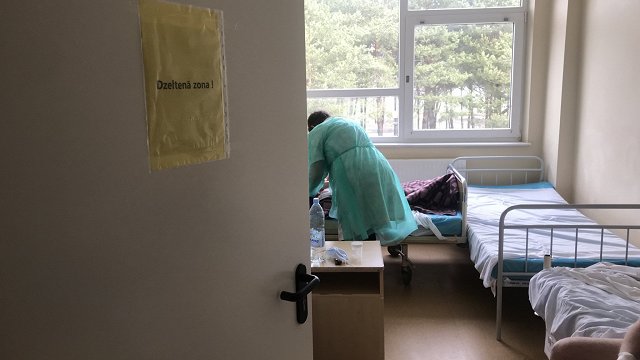In Latvia, 3,679 people died in 2021, for whom “medically avoidable death” was later recorded in statistics, according to data from the Disease Prevention and Control Center (SPKC). This is about ten people every day. Most of these are recorded in Latgale. These are people who wouldn't have died if they had received adequate medical treatment, which for various reasons hasn't happened.
The Ministry of Health has drafted a reform plan that should ensure that all patients are treated at the same quality, including the exact requirements for each hospital profile. At the same time, the plan provides that this equality be achieved by bringing the quality down in some cases.
According to this proposal, first, second and third-level regional hospitals [hospitals with a relatively lower treatment capacity] would no longer have surgeons and/or anesthesiologists and reanimatologists onsite 24/7.
“We can certainly say that accessibility will deteriorate because these patients will need to be taken somewhere, and then they may even have to come back during the night, how to make it all - that is a matter that we have been discussing with each other for decades,” says Jevgēņijs Kalējs, head of the Latvian Hospital Association.
For example, Madona Hospital is one of the leaders in surgical activity among authorities in the regions, but the anesthesiologist has been crossed out from the 24/7 availability specialists at the reception department. The hospital manager says such a plan cannot be adopted.
“An emergency hospital, a third-level hospital, the kind we are, is not imaginable without an anesthesiologist and reanimatologist. We are also concerned about the quality criteria that are being developed [..]. Because experience has shown that it is nevertheless important to set out proportional [criteria], which hospitals can introduce,” said Līga Šerna, president of the Madona Hospital Board.
Health Ministry official Sanita Janka has repeatedly stressed that all that is intended is for the benefit of patients "in the name of quality".
“The situations are very different. There are hospitals where [now] these two specialists are not available all day long. And then, if we keep this requirement, it means that [all] hospitals have to provide these specialists. We would not be very keen to develop a situation when the doctor has finished a shift in one hospital and is moving to another, and he works 24-hour shift after 24-hour shift,” says Janka.
The quality criteria referred to by hospital representatives have been discussed in the past. The intention is to set up nine methodical management centers that will monitor the quality of treatment processes throughout the country. In addition to setting guidelines, treatment algorithms, and similar criteria, this would include audits on how hospitals comply with guidelines and criteria. These centers should be set up by the beginning of next year and would also need additional funds of around €3 million.
According to hospital representatives, it is not possible to set quality criteria and introduce them on the following day. This should take about a year and more.
On an already tense background, the reform plan has further hurt the atmosphere for additional funding for medical treatment institutions to cover the budget shortaes caused by inflation. Hospitals say there were not enough discussions about change and there is no justification for excluding certain profile specialties from service. The Ministry of Health says there has been a misunderstanding.
In the opinion of the Ministry of Health, even equal-level hospitals have a different understanding of what quality and scope service they should provide. The Minister for Health Līga Meņģelsone said: “I think it is very important for all of us to have uniform criteria, because, from the point of view of the Ministry, two things are important – the first is patient safety, and the second is the efficient use of money, the rest and beyond are, as we say, in the work process.”
Previously, the Prime Minister Krišjāins Kariņš demanded reforms, indicating that it is not possible to give additional money to the health sector otherwise. It is already clear that the government will in any case try to find money to cover the additional costs of inflation. But it's not a retreat from the requirement for reforms. This will be discussed in the government on May 30, just before the presidential elections.


























